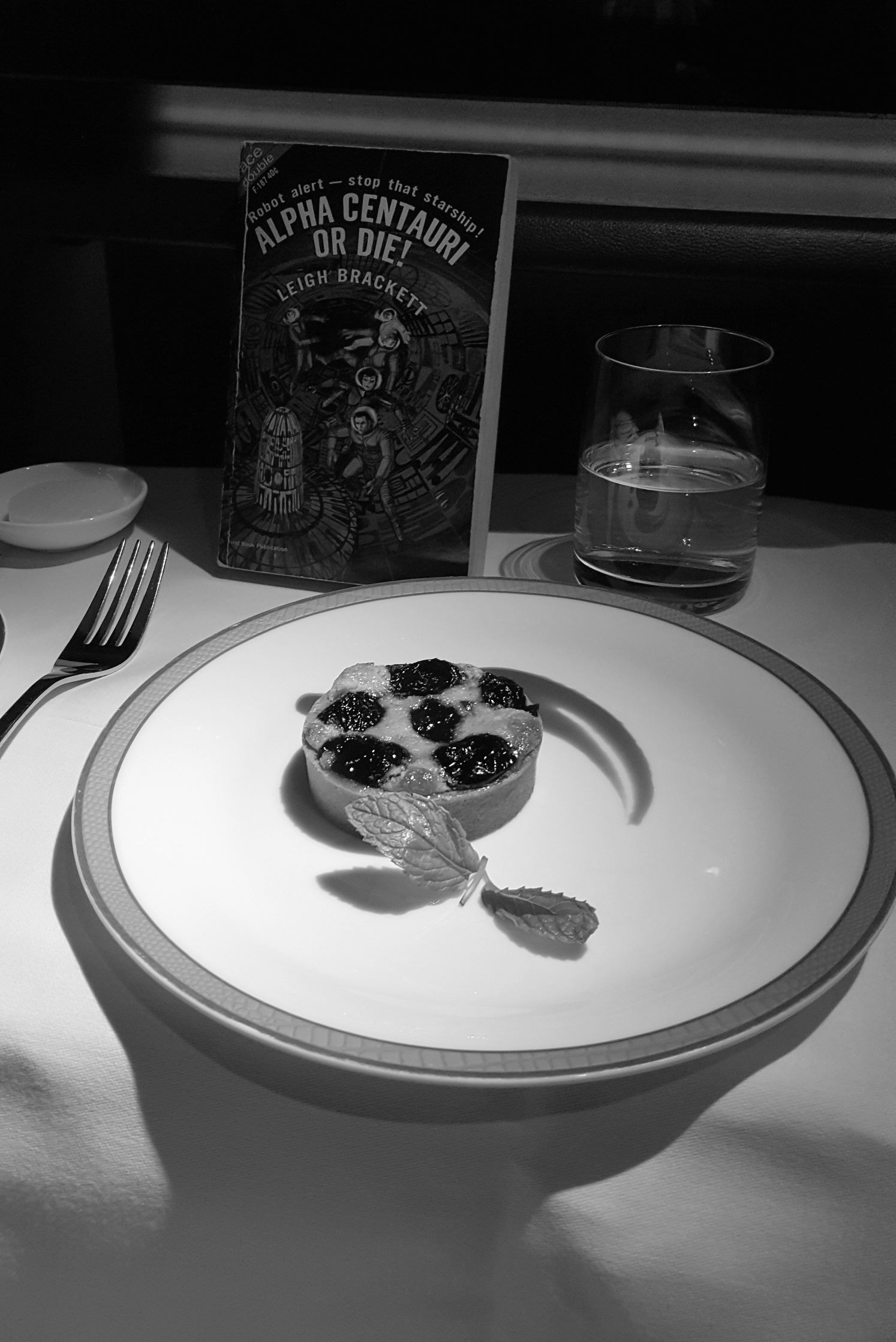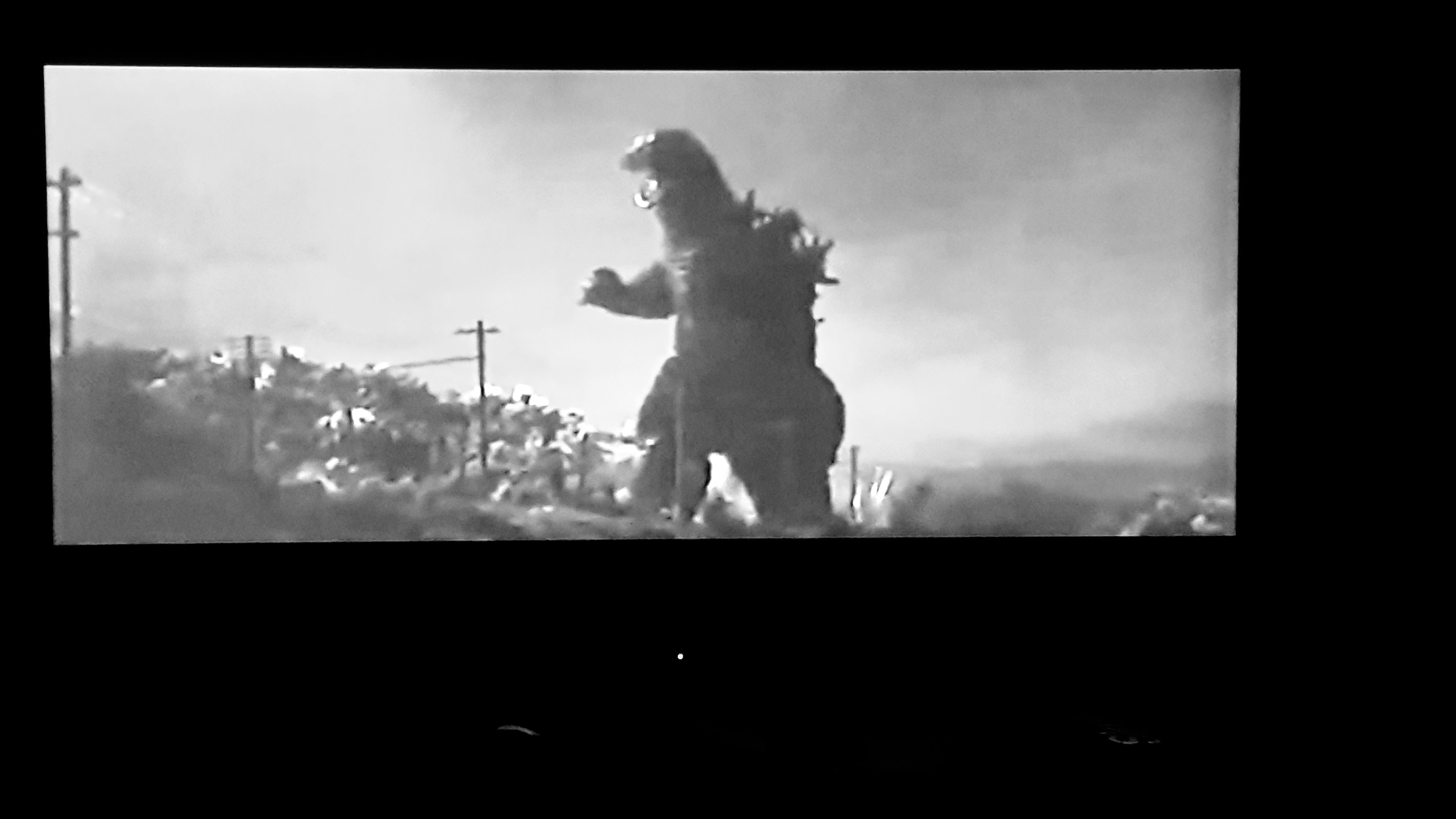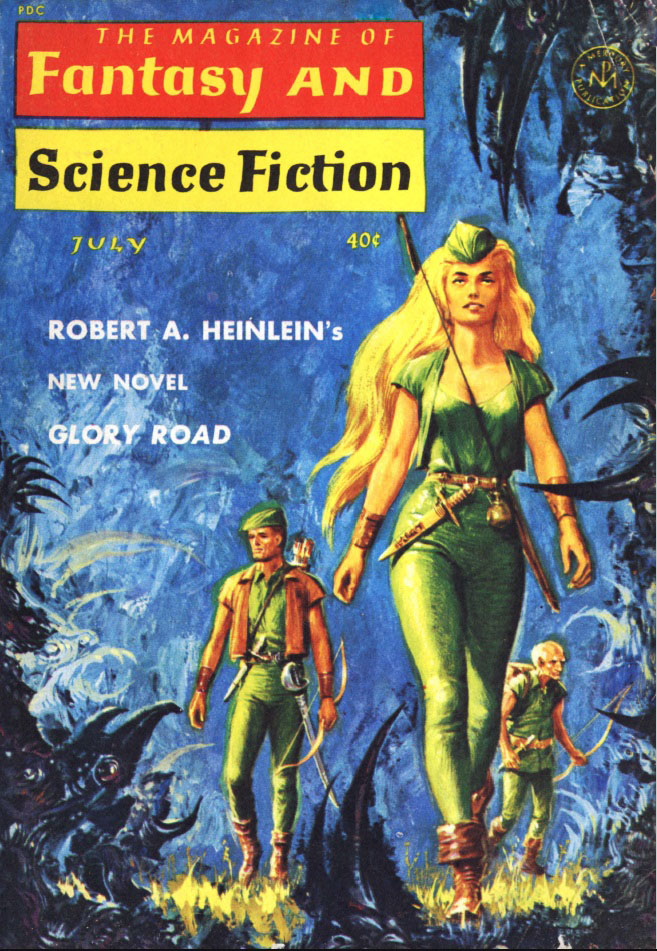
by Gideon Marcus
This weekend, floating on air with the news of the publication of my first piece of fiction (the lead in an anthology of Sidewise in Time stories — do please pick up a copy!) I took a trip to San Jose with my wife. This was strictly a vacation, you see, a last restful spell before taking on the school year and redoubling our writing efforts. There was no other reason for visiting this peaceful city south of the Bay.
After all, Worldcon isn't for another two weeks.
The trip wasn't entirely science fiction free. I took a recent Ace Double with me, particularly exciting because one half of it, Captives of the Flame, is one of the rare novels written by a Black person (Sam Delany, a newcomer to the scene).
I also finished the September 1963 Fantasy and Science Fiction — a less exciting experience.
I knew even before cracking the covers that it'd be something of a lost cause. Robert Heinlein's latest serial, Glory Road, concludes in this issue, and I'd already given up on the book in its second installment. Thus, a huge chunk of the magazine is so much ballast. The rest is varying shades of acceptable. Were Nat King Cole to write a song about them, well, it'd be a sharp contrast to his 1951 hit…

There Is Another Shore, You Know, Upon the Other Side, by Joanna Russ
A wisp of a girl, British by extraction, flutters at the edge of Roman nightlife. Irresistibly beautiful, she remains frustratingly out of reach of all but the most persistent of would-be lovers. When Giovanni does manage to catch the butterfly, she crumbles to dust in his arms. Some things are better left alone.
Joanna Russ appears to have finished graduate school and is turning her pen to writing full-time. This is her third story in F&SF, and her appearances are always welcome. That said, this is the least of the works from this "young and nice" possessor of "very blue eyes." It's vividly written, but it goes on twice as long as it needs to, and the ending is obvious from the beginning. I also found Giovanni maddening in his pushiness. Three stars, but with a hopeful suspicion that this is the author's lowest ebb.
Glory Road (Part 3 of 3), by Robert A. Heinlein
I know I'm not alone in my disappointment with this serial. That said, I am already seeing fans salute each other with calls of "Are you a coward?" (a reference to the ad that starts the story's adventure) so I imagine this book will sell reasonably well. You're welcome to tell me how it ends and what you thought.
The Man Who Feared Robots, by Herbert W. Franke
F&SF has been at the vanguard in its offering of foreign science fiction, with stories from French, German, Czech, and even Japanese authors. This month, we get our first taste of SF from an Austrian pen, about a fellow undergoing psychotherapy to treat his irrational(?) fear that everyone he knows is actually a robot. An interesting theme with not particularly noteworthy presentation. I'd love to see a book on this topic some time. Three stars.
Collector's Item, by Jack Sharkey
Readers of this column know that Jack Sharkey is my favorite authorial whipping boy. He just comes out with so much drek so often. That said, he has written stories I have enjoyed, particularly the ones involving the scout service fellow who swaps minds with extraterrestrial fauna. Item features a fellow who delights in subverting hoary similes with physical objects. For instance, he owns loose drums, lazy bees, dirty pins, and so on.
In fact, the so on goes on for a long time, the list of items in the protagonist's collection being nearly as long as the catalog of ships from the Iliad. All to set up a final pair of puns that I found worth my time. It made me smile. Three stars — four if you're a big fan of Feghoot.

Who's Out There?, by Isaac Asimov
The Good Doctor fairly gushes over The Young Doctor, a Dr. Carl Sagan who, at just 27, has already made a big name for himself in planetary science. I understand that this article is the expurgated version, and that the original one was even more praising of the astronomer.
In any wise, this particular piece, inspired by a conversation with Sagan, is on the likely number of extraterrestrial civilizations currently extant in the galaxy. It's an unusually tedious and tentative piece, not up to Doctor A's normal capabilities. Maybe Avram is crimping his style. Three stars.
Unholy Hybrid, by William Bankier
A renowned horticulturalist finds a way to grow a champion squash and do away with an unwanted house guest at the same time. However, he soon finds that the seed of his evil act bears revenge-seeking fruit.
If the anti-woman sentiment doesn't give you pause, the staleness of the subject matter will. And yet, there are moments of crystalline writing here that save the piece from oblivion. Three stars verging on two (or vice versa).
Attrition, by Walter H. Kerr
A poem on the near-immortals who Walk Among Us, their youthful faces just beginning to fray. Worth a read. Three stars.
237 Talking Statues, Etc., by Fritz Leiber
And, at last, a screenplay about a young man and his conversation with his satyric dead father, the latter narcissistically preserved in several hundred paintings and statues. A cute diversion, right in the middle of the great Leiber's range of production. Three stars.

I was once told that my star rating system was flawed because it didn't account for story length. I explained that, in fact, it does. So I shall now pull the curtain back and show you how I calculate my magazine ratings:
There were eight pieces in this issue, seven of which scored 3 stars, and one of which scored 1. The average is, thus, 2.875.
However, if one weights for page length, Glory Road takes up most of the magazine and drags things down. That said, I don't have a direct ratio of pages to impact. In other words, a piece that takes up two thirds of an issue doesn't comprise two thirds of the ultimate rating. Here's my scale:
1-8 pages: 1 length point
9-19 pages: 2 length points
20-40 pages: 3 length points
41-70 pages: 4 length points
71+ pages: 5 length points
Arbitrary, but it keeps the calculations simple. It also means I somewhat equalize the credit between a brilliant vignette and a brilliant novella.
Using this method, this issue gets just 2.286 stars.
I then further flatten things out by averaging the two and rounding the result. Thus, I get a final score 2.6 stars.
In short, my system is about 3/4 based on the quality of pieces and 1/4 based on the length. Agree or disagree, that's the system I've used for years so I now have to stick with it for consistency's sake.
And we all know what foolish consistency is the hobgoblin of…

![[August 21, 1963] Forgettable (September 1963 <i>Fantasy and Science Fiction</i>)](https://galacticjourney.org/wp-content/uploads/2018/08/630818cover-672x372.jpg)

















